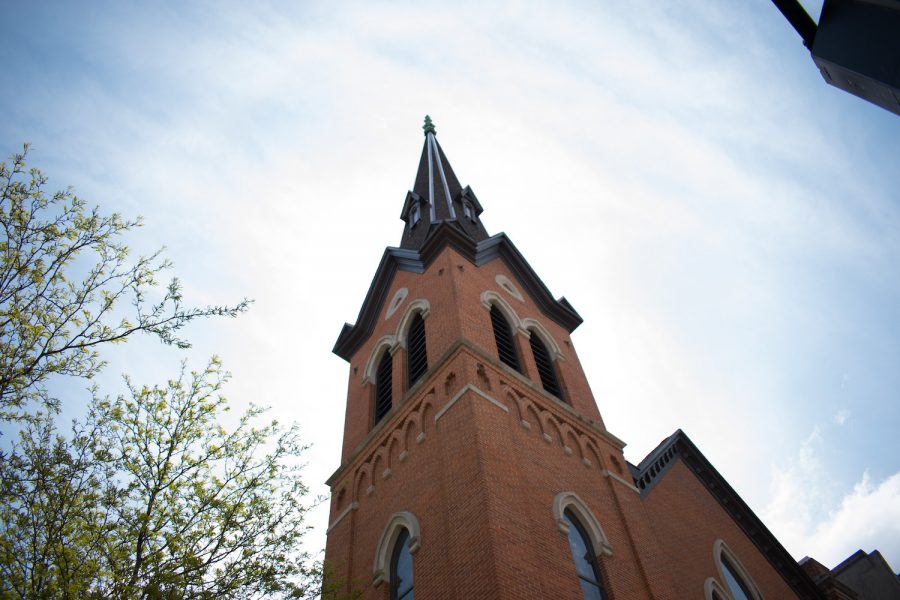Opinion | Religious groups provide a community at the University of Iowa
The University of Iowa has had many battles with religious groups on campus, yet it is time for them to work together.
A chapel is shown in Iowa City on May 9, 2021.
June 21, 2021
For many years, religion has been a symbol of hope. Yet, at times, it gets a bad reputation with college students and administration.
One example comes from multiple court cases that spawned in 2018. The University of Iowa was banning religious groups’ rights to enforce its leaders to be of the faith because they believed it violated the campus non-discrimination policy. On June 1, 2018, InterVarsity, a Christian student group, was booted off campus and strained the relationship between religious groups and the UI administration.
What does this have to do with community-based events? For starters, these disagreements from previous years put a major strain on religious student groups, like 24:7 College Ministry.
24:7, a Christian student group, had events that brought people in the religious community together. People could go bowling with one another and play sports and games on campus.
Matthew Wang, a third-year UI undergraduate student, began participating in 24:7 when he was a freshman in 2019. He wrote in an email to The Daily Iowan that the group changed since the COVID-19 pandemic, shifting its focus from bringing in new people through physical activities to strengthening current bonds through testimonials of faith.
“Though before COVID it has been happening, covid had given people the time and space to be able to really take time to talk and uplift each other,” Wang wrote.
However, this past year changed that. The university implemented new COVID-19 policies to ensure social distancing and student safety. The group did not know whether it had the go ahead to play on the fields.
Wade Urig, a pastor from 24:7, said the group is left undecided on recertifying as a student organization on campus. Although, the group hopes that it will be a student organization, they are trying many different ways to continue bringing in students, such as spikeball and other fun physical activities.
“I am still a bit confused myself on where we are at, but our hope is that we will be a student org this year,” Urig said.
Although the policies were meant to keep students safe, it also pushed away groups like 24:7.
This could be for many different reasons, but one of them could be the UI’s history with religious groups. In the past, we have seen the university be rather standoffish toward religious student groups to the where it is pushing groups off of campus.
This can seem rather gloom and doom, but there have been positive pushbacks, as well. One being on Sept. 30, 2019, where the InterVarsity group won a court case against the UI in a federal district court.
If the university and religious groups can put aside their past disagreements, they could do something beneficial for each other. Religious groups like 24:7 can provide a fun yet studious opportunity for people who are interested in religion and religious activities.
As a way to ease into religion, while also accommodating those who are undecided on joining, these groups can help towards developing stronger community ties with one another.
The university benefits from these groups and these events by receiving students who are closer to one another, and they can better understand one another’s similarities and differences.
This requires both sides to cooperate. Religious groups have to tolerate situations like the COVID-19 pandemic when policies are going to rapidly shift. The university needs to be knowledgeable on the religious groups rights to their religion on campus.
For both sides to move forward, they need to put past disagreements behind them so religious student groups and the university can work toward being a better community.
Columns reflect the opinions of the authors and are not necessarily those of the Editorial Board, The Daily Iowan, or other organizations in which the author may be involved.



